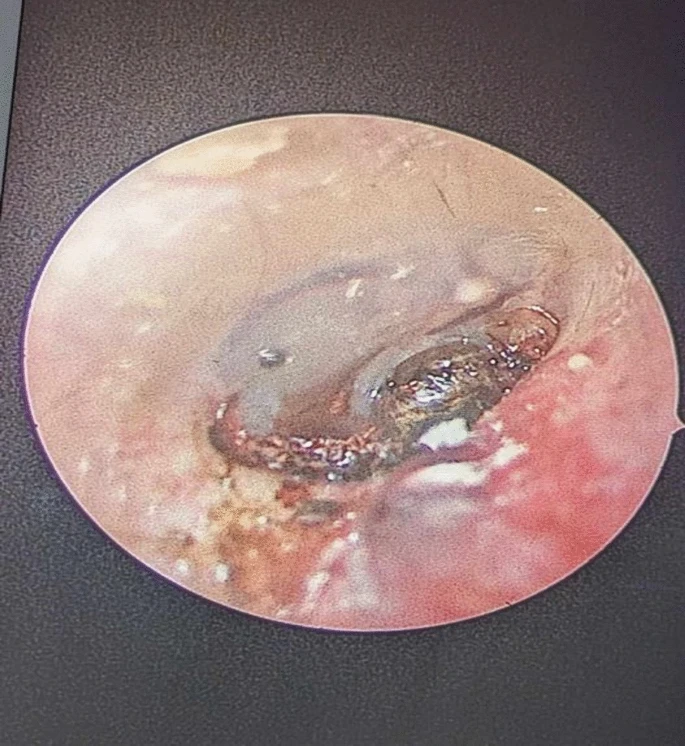A new case report details the successful treatment of acute labyrinthitis caused by intra-aural tick infestation in a 21-year-old female patient. Early intervention using a multimodal treatment approach resulted in complete symptom resolution within 4 weeks, preventing long-term complications.
The patient presented with sudden-onset right-sided otalgia accompanied by vertigo, emesis, and auditory impairment. Otoscopic examination revealed a tick lodged in the anteroinferior aspect of the external auditory canal, with audiological assessment indicating profound sensorineural hearing loss on the affected side, according to a case report published in the Journal of Medical Case Reports.
"The primary concern arises as acute ear pain, triggered by an enzyme in tick saliva that initiates pronounced local inflammation," the authors wrote.

The treatment protocol included:
- Careful tick removal using suction and Hartmann's forceps
- Ibuprofen 400 mg orally every 6 to 8 hours PRN for 7 days
- Paracetamol 500 mg orally every 4 to 6 hours PRN for 7 days
- Prednisolone 20 mg orally once daily with tapering over 14 days
- Amoxicillin-clavulanate 500/125 mg orally every 8 hours for 7 days
The case highlights a rare but serious complication of tick infestation occurring in less than 1% of patients with ear complaints. The authors noted that ticks can release neurotoxins that inhibit acetylcholine, potentially inducing respiratory distress or paralysis in severe cases.
At the 1-month follow-up, otoscopy revealed a clear right external auditory canal with an intact tympanic membrane. Pure tone audiometry demonstrated a complete reversal of the previously documented hearing loss.
Aural tick infestation may not typically require emergency designation but highlights the potential complications, including tinnitus, hearing loss, vertigo, and facial nerve palsy. They suggest involving otolaryngologists, infectious disease specialists, and neurologists to ensure comprehensive patient care.
The report also discussed the potential role of quantitative polymerase chain reaction (qPCR) testing for rickettsial infections, particularly in cases presenting with facial nerve palsy.
The case was treated at B.P. Koirala Institute of Health Sciences in Dharan, Nepal. The authors declared having no competing interests.
